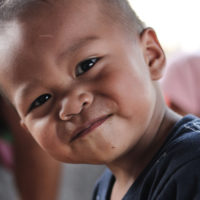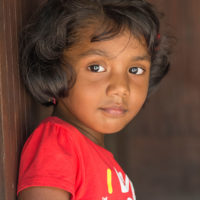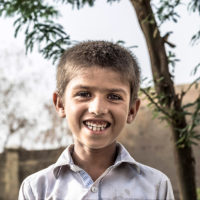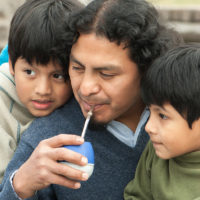trauma
-

Cognitive processes mediate the post-traumatic stress trajectory in adolescents
A new study has shown that cognitive processes shape the early reactions of children and adolescents to traumatic stressors, and mediate the transition to persistent and clinically significant post-traumatic stress symptoms (PTSS).
Read more -

Eye movement desensitization and reprocessing improves PTSD symptoms in children
Practice guidelines for childhood post-traumatic stress disorder (PTSD) recommend trauma-focused psychological therapies as the first-line treatment. The primary approach is trauma-focused cognitive behavioural therapies, which have a large evidence base.
Read more -

Trauma-focused group intervention is superior to usual care for young refugees
Data from a randomised controlled trial show that trauma-focused group intervention delivered by trained social workers in addition to usual care (UC) is more effective in reducing post-traumatic stress symptoms (PTSS) in young refugees than UC alone.
Read more -

Foster care promotes adaptive functioning in early adolescence among children who experienced severe, early deprivation.
Experiences in our early life can have long-term consequences on development. Children who have experienced severe deprivation, in the form of institutional care (orphanages), are at greater risk to experience a range of social, emotional, and cognitive difficulties. In fact, much of the research tracing long-term consequences of early adversity have come from a deficit model (i.e., “what goes wrong for those with negative experiences”).
Read more -

Early cognitive therapy for traumatised young people works and is also cost-effective
More than half of children and adolescents will experience traumatic events like vehicle accidents, house fires, or violence. However, brief counselling for young people in the immediate aftermath of an acute traumatic event has not be shown to be any more effective than not intervening and allowing natural recovery to take its course.
Read more -

Latest evidence on mental health interventions and service response to refugee children
The latest figures indicate that in 2016 65.5 million people had to leave their homes due to war and armed conflicts, of which around one-third of are refugees who fled other countries to seek asylum.
Read more -

Parental responses in predicting children’s PTSD
Many children will be exposed to a potentially traumatic situation at some point in their childhood -that is, an event where there is a potential threat to life or of serious injury to the child, or to someone close to them. These events can range from common unintentional or accidental traumas, such as car accidents or serious sporting accidents, to deliberate harm, such as assault or maltreatment. Such trauma exposure can have a significant negative impact on a child’s psychological wellbeing.
Read more